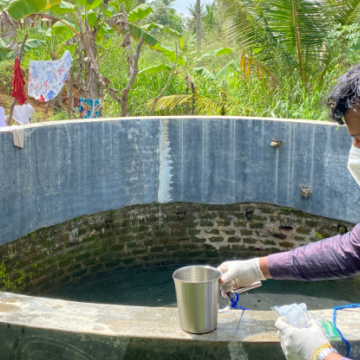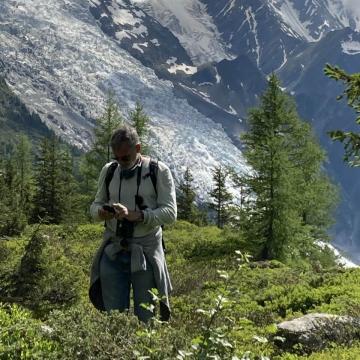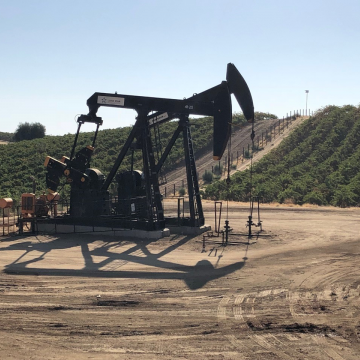-
NewsProducing energy from fossil fuels uses or contaminated much more water than previously estimated, a new book by two Duke researchers shows.
-
NewsDuke researchers implement a large water sampling campaign in rural Sri Lanka, aiming to discover the origins of a cluster of chronic kidney disease cases.
-
NewsScientists, led by alumna Jacqueline Gerson PhD'21 and faculty member Emily Bernhardt, recorded the highest levels of atmospheric mercury pollution in the world in a pristine patch of the Peruvian Amazon
-
NewsMany North American tree species have begun to slowly migrate northward in response to global warming, but western and eastern forests are responding differently. A new Duke-led study reveals why.
-
NewsAs trees age and grow, it seems logical to assume their seed production will continue to grow, too, but a Duke-led study of 597 species worldwide nips that assumption in the bud.
-
NewsA new GPS-enabled study led by Duke University scientists provides the first landscape-scale documentation of elephant movements across and between seven national parks in Gabon and helps answer not only the questions of where and when the animals move, but also why.
-
NewsShannon Switzer Swanson MEM'15 hosts the documentary, “The Last Drop.”
-
NewsNew research reveals western North American forests may be less able than eastern forests to regenerate following large-scale diebacks linked to climate change. Over time, this could dramatically alter the continent’s landscape.
-
NewsIn "Streams of Revenue: The Restoration Economy and the Ecosystems It Creates,” Martin Doyle chronicles and analyzes the history, implementation and environmental outcomes of stream mitigation banking, one of many widely used market-based approaches to conservation.
-
NewsThe proliferation of pits and ponds created in recent years by miners digging for small deposits of alluvial gold in Peru’s Amazon has dramatically altered the landscape and increased the risk of mercury exposure for indigenous communities and wildlife, a new study shows.
-
NewsGroundwater depletion in parts of the High Plains is so extreme that peak grain production in some states has ended and production is now declining, a new Duke University-led study by a team of international scientists finds.
-
NewsGovernments might be able to prevent future pandemics by investing as little as $22 billion a year in programs to curb wildlife trafficking and stem the destruction of tropical forests, a new analysis by an international team of scientists and economists shows.
-
NewsScientists at Duke University are harnessing the power of big data and geospatial analysis to create new ways to track the effects of climate change on species and food webs.
-
NewsSmall-scale gold mining in the Peruvian Amazon poses a health hazard not only to the miners and communities near where mercury is used to extract gold from ore, but also to downstream communities hundreds of kilometers away where people eat mercury-contaminated river fish as part of their diet.
-
NewsReusing low-saline oilfield water mixed with surface water to irrigate farms in the Cawelo Water District of California does not pose major health risks, as some opponents of the practice have feared, a study led by Duke University and RTI International researchers finds.














